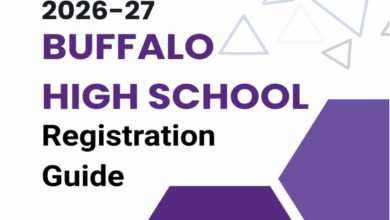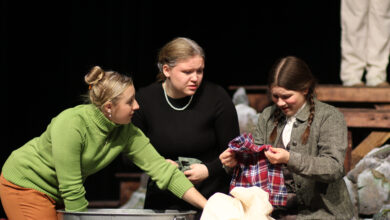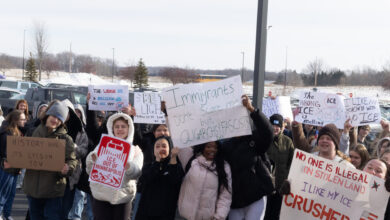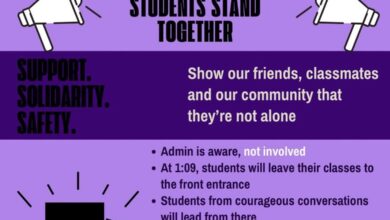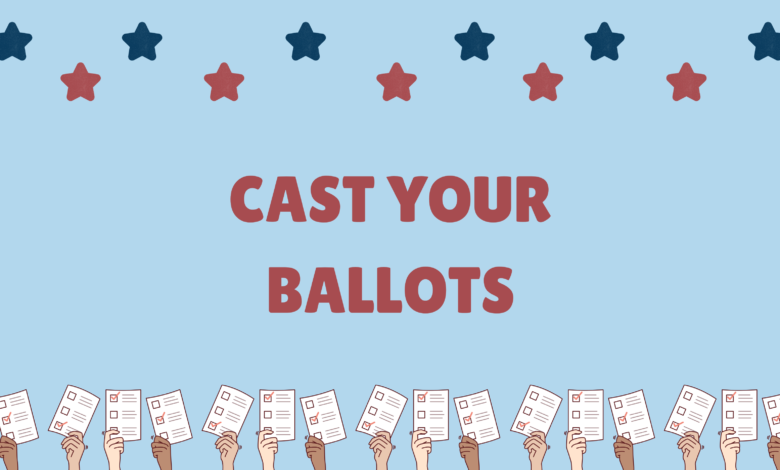
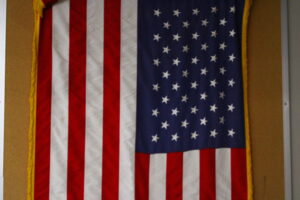
As the nation and community prepare to cast their ballots in one of the most tense and unprecedented presidential elections in recent history, the effects have begun to be felt locally. From discussions at lunch tables and in social studies classes, to even the upcoming school board election, the policies and promises of presidential candidates are shaping opinions and decisions in Buffalo. But how exactly will this election affect us here?
To answer this question, a few social studies educators were consulted about the political climate, the tensions surrounding this time, and the effects of the election on local unity Additionally, they offered advice on how students can get involved and make their voices heard, whether they are old enough to vote in November or not.
CIS World History teacher Tara Rosh shared her perspective on the election. When asked about her view as a social studies teacher, she made a unique comparison, likening the experience of following the election to watching the Super Bowl.
“As social studies teachers, a general election is our Superbowl,” Rosh said. “We get pretty fired up, we love watching election coverage, and everything leading up to it. The debates, the conventions, we do it all.”
While many individuals have noted increased political polarization in recent elections, Rosh has noticed a surprising shift this year.
“I do feel like tensions seem lower in this election than in 2016 and 2020,” Rosh said. “For me personally, I’m seeing that tensions are at a lower level, which is very surprising to me.”
Despite the reduction in tension, Rosh is concerned about how national narratives often overshadow local issues.
“What bothers me most about the national narrative is that they don’t do a good job of sticking to issues that actually impact local communities,” she said.
According to Rosh, local elections, which often have a greater influence on daily life, deserve greater attention from citizens, and citizens should pay attention to them.
“Our local elections actually have a far bigger impact on our lives than the national election does, but these are the elections that we pay the least amount of attention to,” Rosh said.
When asked how students could get involved, Rosh emphasized the crucial role young people could play if they actively participated in the electoral process.
“Show up and vote,” Rosh highlighted. “If young people showed up and voted, they would have a tremendous impact on what’s happening in our nation. The problem is that a lot of young people will show up for the general election but they’re not showing up for the primaries—and the primaries are becoming increasingly important because that’s where we pick our candidates.”
Craig Lachowitzer, the sole CIS US History teacher at BHS was also consulted about his perspective on the tensions that he’s seen in the community and his insights on how we can lessen those tensions.
“In the last two or three presidential elections, it seems that things have become more polarized,” he said. “I think part of that is due to social media and the availability of information that can come from any source.”
This shift toward polarization, Lachowitzer believes, has created a divided mentality, making it harder for communities to come together.
“When people have polar opposite views, sometimes those individuals can clash- especially when it becomes, as it usually does, an ‘us vs. them’ mentality.”
As Lachowitzer acknowledged the tensions that arise during election seasons. he still stressed the need for unity and collaboration beyond the election cycle.
“It’s important to remember that we are one nation, one community, that we are all in this together, and that we need to be able to work through and together after the election is completed,” Lachowitzer said.
When asked how students can get involved and make a difference in our community, Lachowitzer emphasized the importance of civic engagement and informed participation.
His message to both students and adults is clear: “Use your voice, to vote, but also to do it in an educated manner, and know that regardless of the outcome of the election, we are all one big community here.”


